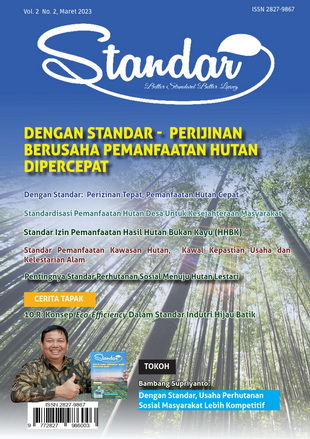ESTABLISHING SUSTAINABILITY STANDARDS FOR INDONESIA’S FOREST PRODUCTS
Kata Kunci:
non-timber forest products, NTFP, Forest Product, Hasil hutan, SustainabilityAbstrak
Indonesia is a major player in global forest product industries. It has over 92 million hectares of forest cover, making up almost 50% of its land area (Cerutti et al., 2022). It’s home to the third-largest expanse of tropical forest in the world, after the Amazon and the Congo Basin. The country is one of the world’s largest exporters of wood products, and it also produces key non-timber forest products (NTFPs) such as rattan and turpentine.
In our global context of climate and biodiversity crises, the importance of trees and forests has become widely known. They provide critical ecosystem services such as carbon sequestration, biodiversity conservation, water cycling, livelihood provision, and much more. Indonesia’s forests make a significant contribution to global climate change mitigation and harbor a wealth of globally significant biodiversity, including an estimated 10 to 15 percent of all animal and plant species on Earth (UN-REDD 2021). Its expanses of tropical peatlands – almost a quarter of the planet’s – punch well above their weight in terms of carbon sequestration, putting away an estimated 30 percent more carbon than the biomass of all other Indonesian forests (Warren et al., 2017).
Unduhan
Diterbitkan
Cara Mengutip
Terbitan
Bagian
Hak Cipta (c) 2023 STANDAR: Better Standard Better Living

Artikel ini berlisensi Creative Commons Attribution-NonCommercial 4.0 International License.





